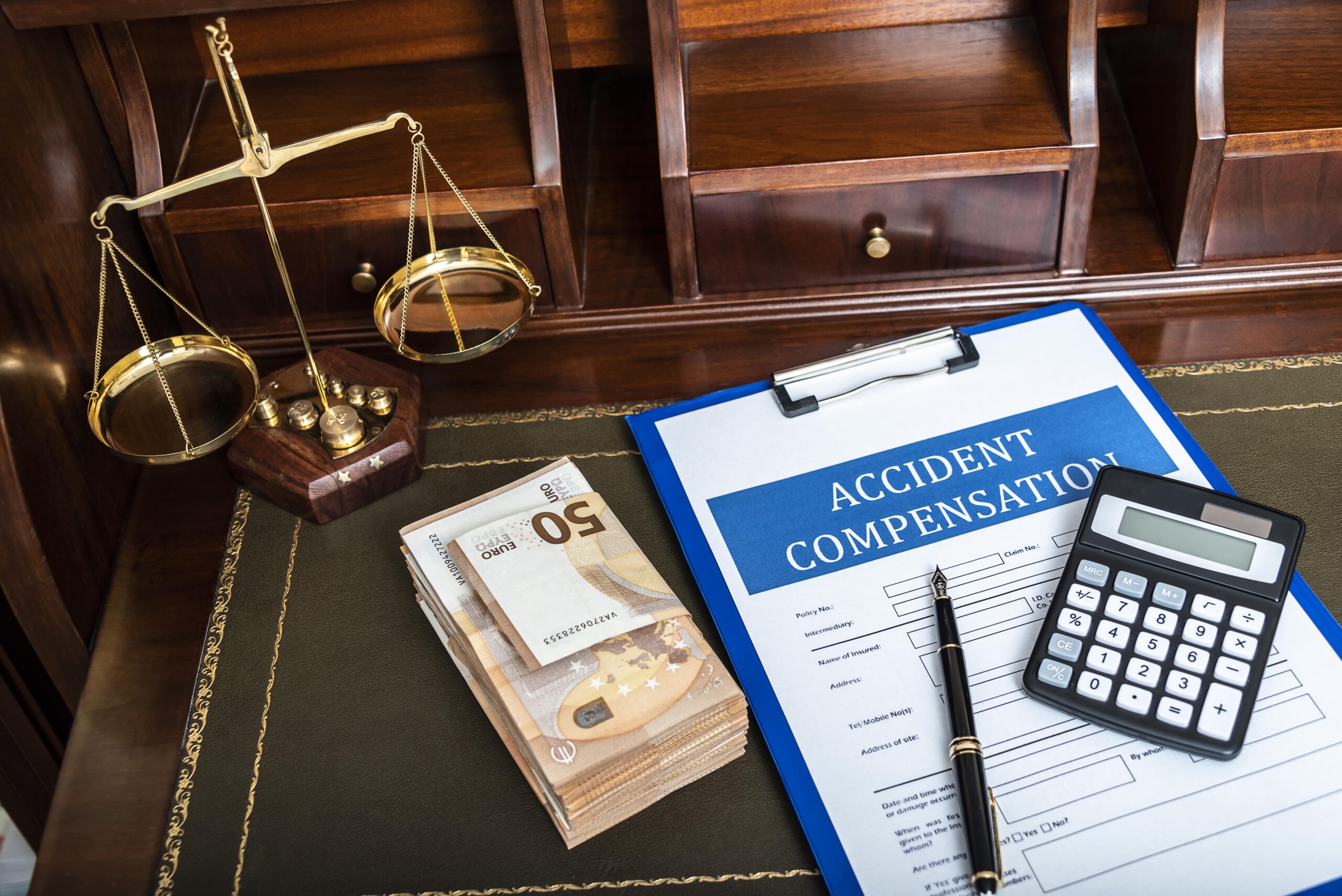Workers’ Compensation And Personal Injury Settlement
Despite the fact that many claims for work-related injuries are relatively straightforward, other cases can become complicated, especially when a third party is associated.
In a scenario like this one, in which your unfortunate incident involves workers’ compensation and personal injury settlement, as well as personal injury and negligence, it is essential to synchronize your claims for reimbursement in order to achieve the best possible outcome.
What Is The Difference Between These Two Claims?
First, let us understand the differences that workers’ compensation and personal injury settlement.
A claim for personal injury must be brought in a civil lawsuit of general jurisdiction against the person or business whose negligence caused the plaintiff’s injuries.
In addition to compensation for medical bills and lost wages, the injured party may also seek compensation for their emotional distress. In some cases, the amount of money awarded for discomfort and suffering damages is quite high. However, it is never guaranteed that damages will be recovered in a personal injury case.
Workers who have sustained an injury or illness as a result of their employment are eligible for pay rate suitable alternative and medical benefits under a system known as workers’ compensation, which is funded by the employer through the purchase of workers’ compensation insurance. When this occurs, the worker who became ill or injured loses the ability to file a lawsuit against their employer in civil court for negligence.
Here are some major differences between the two claims-
● Damages caused due to pain and suffering
● Damages caused due to pain and suffering
When pursuing compensation for a personal injury, it is possible to receive a monetary award for the victim’s pain and suffering if the circumstances are right. This would occur in addition to medical bills and wage loss compensation. In contrast, a worker’s comp settlement never accounts for emotional distress. In addition, awards for workers’ compensation are typically distributed on a weekly or periodic basis, while damages for personal injury are typically collected in a single sum.
● Right to file a lawsuit
In legal terms, a worker who sustains an injury or illness while performing their job is not permitted to sue their employer for damages. A worker is required by law to file a claim for compensation through the workers’ compensation system in their state in the vast majority of cases.
● Ascertaining the accused person
In most cases, a plaintiff in a personal injury lawsuit is required to provide evidence that the defendant was at fault for the circumstances that led to the plaintiff’s injury. In most circumstances, this would be considered a form of negligent behavior. In contrast, an injured worker who files a claim for workers’ compensation does not need to demonstrate that the employer was at fault or negligent in order to be compensated for their injuries.

Why was a workers’ compensation claim enacted?
Workers who become ill or injured while on the job are protected by the workers’ compensation system in return for giving up their right to sue their employer in civil court. Employers can’t afford to go bankrupt if injured employees win large damage accolades in negligence actions, so workers’ compensation systems were enacted. As an added bonus, workers who sustain injuries on the job are guaranteed financial compensation.
How do a workers’ compensation and personal injury settlement overlap?
You know, sometimes the best possible way to understand a complex situation is with an example of a practical instance. So let us for now, settle for an example to understand this overlapping scenario.
An industrial accident leaves you with a severe injury and unable to work for a while. Your employer has assured you that worker’s compensation insurance will pay for your medical expenses and keep you financially stable while you recover from your injury.
The amount of your first paycheck will be smaller than subsequent paychecks. The insurance provider explains that you will only receive compensation equal to two-thirds of your regular salary while out of commission due to a work-related injury. In addition, the insurance company has informed you that you will not be compensated for time away from your next job if you are unable to perform your duties there because of the same injury.
You’re understandably frustrated and feel swindled, but after perusing a law firm’s website, you learn that the manufacturer of the defective machinery or their insurance may be liable for the remainder of your lost wages. It’s not unusual for a worker’s compensation claim to double as a personal injury claim.
Therefore, these are the basic differences between a workers’ compensation and a personal injury settlement. And this is how in some situations, despite having vivid differences, both of these claims overlap and can work together for the victim.
Useful Related Article:
1. Know Your Legal Rights When You Injure Yourself At Work?
2. Do You Have To Call The Police After An Accident?
3. What Are The Common Causes Of Pedestrian Accidents?
Schedule A Consultation With One Of Our Attorneys Now!
-
$1,300,000.00
Auto v. Auto Personal Injury
-
$1,015,000.00
Elder Abuse
-
$825,000.00
Auto v. Auto personal injury
-
$825,000.00
Slip/Trip & Fall
-
$800,000.00
Truck Accident Personal Injury
-
$695,000.00
Industrial Personal Injury
-
$500,000.00
Drowning Personal Injury
-
$375,000.00
Elder Abuse
-
$350,000.00
Car Accident Personal Injury
-
$250,000.00
Auto Accident Personal Injury
-
$250,000.00
Truck Accident Personal Injury.
-
$250,000.00
Auto Accident Personal Injury
-
$250,000.00
Auto Accident Personal Injury
-
$230,000.00
Trip & Fall
-
$145,000.00
Auto Accident
-
$140,000.00
Personal Injury
-
$125,000.00
Bed Bug Personal Injury
-
$100,000.00
Car Accident Personal Injury
-
$100,000.00
Car Accident Personal Injury
-
$100,000.00
Car Accident Personal Injury
Natalie K
Mr. Stephen Mashney was my lawyer in a recent case. Throughout our discussions he identified all the possible outcomes in attempt to set my expectations. I recommend him for his tenacity and professionalism. I could not have forseen a better outcome. I highly recommend him… Read more “Natalie K”
Basil I
I used A1 Accident Lawyer when I had my auto accident and was very pleased with their top notch service. Mr. Mashney is a hands-on attorney who will return your calls and answer your emails promptly. His staff is very efficient and friendly. I highly… Read more “Basil I”
Evelyn C
Mr. Mashney of A1 Accident Lawyer a terrific attorney. I had to meet with Mr. Mashney regarding a construction issue regarding one of his clients. Mr. Mashney kept all his promises and the whole transaction went very smoothly. Mr. Mashney is very professional and I… Read more “Evelyn C”
Edna E
I had to deal with some legalities just recently and called up Sammy Mashney since he is just a few minutes away from my home. I have to say that I was very impressed with the customer service and quality of work he and his… Read more “Edna E”
White B
A1 Accident Lawyer is everything a law firm should be. They combine conscience with competence, principle with professionalism. When speaking Stephen Mashney you get the feeling that you are a person worthy of consideration and not just another client.”
Lyna N
Had a great experience with Mr. Mashney. He was very professional and gave me good advice. He took my concerns seriously and I appreciated him seeing me on such short notice.”
Yasser A
I strongly recommend the support of the A1 Accident Lawyer for both business and individual legal matters. within at least the past 14 years, I have never lost one case, even traffic tickets, thanks to the help of Mr. Mashney and his outstanding team. Hospitality,… Read more “Yasser A”
Fadi A
I don’t know where to start. Mr. Sami has been my Attorny for years. He is loyal, intelligent and wonderful in every aspect. He helped me and my family with our immigration status and kept his words on what he promised us. As long as… Read more “Fadi A”
Mike A
I would like to thank attorney Stephen Mashney for his exceptional work in handling my case. He and his staff were very friendly and efficient. They returned all my phone calls promptly. At the end, I was very happy with the outcome and I highly… Read more “Mike A”
Emmanuel V
I was a student in need, and Stephen resolved my problem. I was so concerned with the cost because I didn’t have any money. Out of the goodness of his heart, he didn’t charge me and even bought me lunch! Great guy and I TRUST… Read more “Emmanuel V”
Zainab E
A couple years ago I was in a car accident that was extremely life changing to the point where I had to leave my job and drop out of college for a couple of months. Natural instinct of getting in a car accident was to… Read more “Zainab E”
Cidney W
Good business, very satisfied, they always call and update you with concerns from your Case, very professional and honest”
Maria V
The best Law Office in Orange County. The staff it’s always cordial and very attentive with me all the time that I requested any information of my case. The Attorney Stephen Mashney I have the most memorable moments of cordially when for the first time… Read more “Maria V”
Adam J
Professional, helpful, honest. In the few times I have needed legal advice, the team here has gone through lengths to help me out and providing me with a full picture of the issue at hand. They have saved me money by advising me against certain… Read more “Adam J”
Sam A
A1 Accident Lawyer firm has been handling all my business legal matters since 1999. They set up my corporations, review my leases, and write up my contracts. They offer such diverse services. When my wife got in a car accident last year, we were so… Read more “Sam A”
Rusty H
Out of all the attorneys that i have had to use mr mashney is the best.when i had a problem with a renter his advice was spot on he has treated me well and did not try to get rich off me.i have recommended him… Read more “Rusty H”
Jasmina S
Mr. Mashney is the best! Definitely recommend him to anyone in need of legal help. He’s very honest and truly cares about his clients.”
Jad I
My license was suspended after I received a ticket for crossing a double yellow line on the freeway, being in the carpool by myself, and going over 65… ”
Andre A
Sam (Stephen) knows immigration laws, and the staff are very helpful and resourceful. I got a great value for the service, at a very reasonable fee – Mashney helped me submit my immigration form. The process was very smooth and went without a hitch (Thank… Read more “Andre A”
Araceli A
I have to say they are amazing. Extremely professional and helpful. I have always seen lawyers as people just out to get you for money, well this place showed me a lesson. They didn’t just do their job they went up and above the call… Read more “Araceli A”
Snehal K
Stephen and Sherie have helped me on multiple occasions with my minor legal issues. I’m grateful for their assistance.”
Nezar A
Picking a lawyer to represent you is extremely difficult. Fortunately for me, I was referred to A1 Accident Lawyer by a previous costumer of theirs. At first, being as particular as I usually am, I had my guard up with everything – making sure I… Read more “Nezar A”
April H
The A1 Accident Lawyer, did an excellent job with my case. Their team (specially Sherie) were extremely helpful, they answered all my questions & concerns. Which made the process easy. Will definitely recommend.”
Serennaa B
We came in regarding a judgment on my boyfriends credit and an order for garnishment we weren’t sure what to do I found this firm on yelp and saw good review which made me confident I had made the right choice! From the minute we… Read more “Serennaa B”
Melissa G
After I was rear-ended on the freeway and totaled my car, it was a real dilemma for me. The damn insurance company kept jerking me around and gave me false promises. I was so helpless and frustrated that I didn’t know what to do. My… Read more “Melissa G”
Berlin F
After getting into a car accident A1 Accident Lawyer helped me the whole way through. They kept me informed on my case and comfortable throughout the whole process. When it came down to my settlement I had great assistance from Aaron who made sure I… Read more “Berlin F”
Mike R
If you’ve been hurt in an accident and you are considering finding an injury claim lawyer to get any compensation you could be owed, you’ve come to the right place. A1 Accident Lawyer and his team will look after you and will give you all… Read more “Mike R”
Mohamed K
I have been looking for a legal consultation regarding a matter and i started looking online for an office to call to make an appointment. To begin with, the receptionist who answered my call was really professional and she took all info needed from me… Read more “Mohamed K”
Omar H
A1 Accident Lawyer helped me tremendously in the times I needed legal action taken. This firm has there priorities organized, and understand how important the client is. They treat their clients with the upmost respect, and fight pound for pound to make sure justice is… Read more “Omar H”
Tarek A
This lawyer is really trustworthy because he gave us the advice without knowing us. I really recommend him. He is an honest and smart lawyer. I came to him worrying that I was sued. He explained to me that I don’t have to worry about… Read more “Tarek A”
Byron C
Mr Mashney and his entire staff are the most professional and responsive team I have ever encountered in his fields of expertise! I retained his services in December 2010, and he was there for me every step of the way, until my case was completed,… Read more “Byron C”


